Home
The Chief Rabbi, Ephraim Mirvis, intervened in the election campaign by declaring that anti-Semitism was a ‘poison — sanctioned from the very top’ of the Labour party, whose claim to have dealt with cases was a ‘mendacious fiction’.The Archbishop of Canterbury, the Most Rev Justin Welby, said: ‘That the Chief Rabbi should be compelled to make such an unprecedented statement at this time ought to alert us to the deep sense of insecurity and fear felt by many British Jews.’ Jeremy Corbyn, the Labour leader, insisted that ‘rapid and effective’ action had been taken against offenders, and refused to apologise. Chris Moncrieff, a longtime lobby correspondent of the Press Association, died aged 88.
The Conservative manifesto promised to ‘get Brexit done’ in January, to add 50,000 to the number of nurses in the NHS, not to raise income tax, National Insurance or VAT, and to seek a cross-party consensus on social care. The Labour manifesto promised to renegotiate a new Brexit deal within three months and hold a referendum choosing between that agreement and staying in the EU, to increase spending on the NHS in England by 4.3 per cent a year, to establish a national care service and to nationalise the big six energy firms, the National Grid, the water industry, Royal Mail, railways and OpenReach, the broadband arm of BT. Asked in a television interview about a Brexit referendum, Jeremy Corbyn said: ‘I will adopt, if I am prime minister at the time, a neutral stance.’ Labour suddenly made a commitment to spend £58 billion not covered in its manifesto on compensating women born between 1950 and 1955 whose pensions had been delayed. A couple from Sussex won £105,100,701 and 90p on the lottery.
Uber was again denied its licence by Transport for London to operate taxis, on grounds of ‘passenger safety and security’. Police drew tasers as 100 youths, one seen carrying a machete, fought at the Star City complex in Birmingham, where other children had gone to see Frozen 2; the Vue cinema chain dropped Blue Story, a thoughtful film about gangs, from its 91 outlets, after ‘25 significant incidents’.
Some orphans rescued by the British government from a camp in Syria holding people connected to Isis were greeted by family members in London; legal restrictions prevented reporting of their number or identity. Sir Stephen Cleobury, for 37 years director of music at King’s College, Cambridge, died aged 70. Colin Mawby, for 20 years master of music at Westminster Cathedral, died aged 83. Greta Thunberg, Grayson Perry and Charles Moore are to guest-edit the Today programme, separately, over Christmas.
Abroad
Hong Kong’s pro-democracy movement won 17 of the 18 councils in district elections in high turnout. The head of the National Transmission Corporation of the Philippines, part-owned by China, told the senate that China could switch off the country’s electricity remotely. Tuvalu, the Pacific nation with a population of 11,192, rejected offers from Chinese firms to build artificial islands to help it deal with rising sea levels and reaffirmed its support for Taiwan. A Dutch doctor evacuated from Sierra Leone after contracting Lassa fever died in hospital. Thieves stole jewellery valued at a billion euros, but called priceless, from the Green Vault museum in Dresden.
The billionaire former mayor of New York, Michael Bloomberg, aged 77, announced he is standing to be the Democratic party presidential nominee. Ruth Bader Ginsburg, at 86 the most senior liberal voice in the US Supreme Court, was discharged from hospital after suffering a fever. Benjamin Netanyahu, the Prime Minister of Israel, was indicted on charges of bribery and fraud; neither he nor his main political opponent, Benny Gantz, have been able to form a government after two general elections this year. Security forces fired on protesters in southern Iraq, killing at least 13; since the protests began in October, more than 300 have died. Pope Francis visited Nagasaki and said that money squandered on destructive weapons was ‘an affront crying out to heaven’.
President Jair Bolsonaro of Brazil launched a new party to fight corruption and advance Christian values, he said. Days of anti-government protests disrupted Bogotá, the capital of Colombia. A submarine from Colombia ran aground on the Spanish coast where police found it was carrying two tonnes of cocaine. The Queen Hind cargo ship carrying more than 14,000 sheep capsized off Romania. CSH
Got something to add? Join the discussion and comment below.
Get 10 issues for just $10
Subscribe to The Spectator Australia today for the next 10 magazine issues, plus full online access, for just $10.
You might disagree with half of it, but you’ll enjoy reading all of it. Try your first month for free, then just $2 a week for the remainder of your first year.

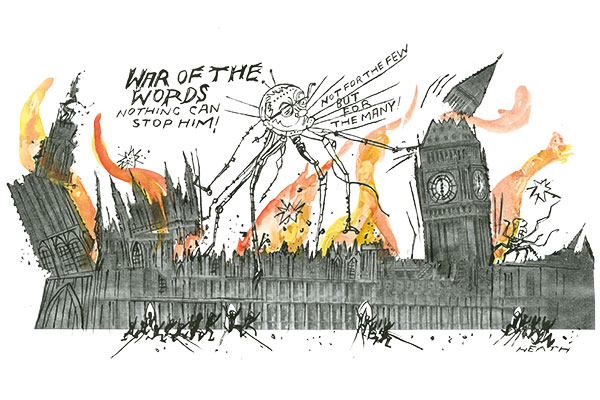
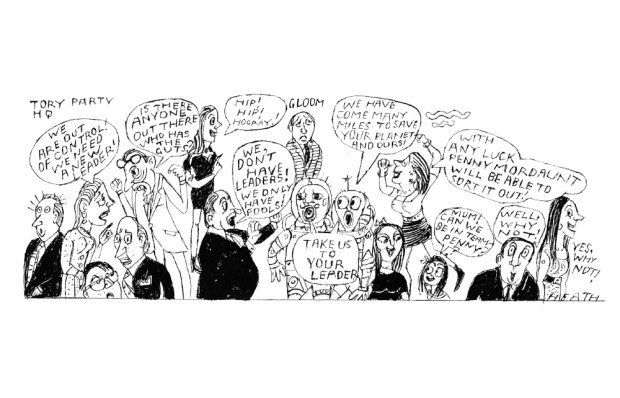
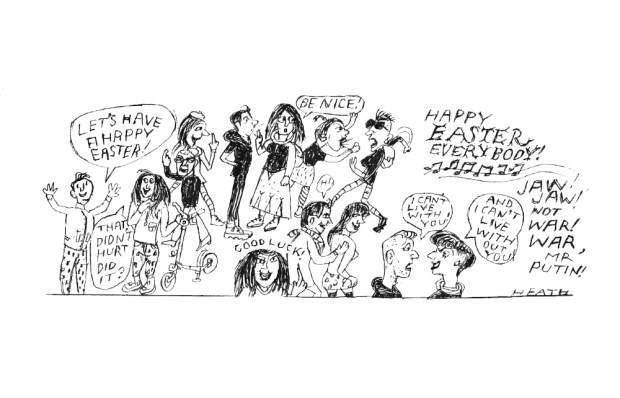
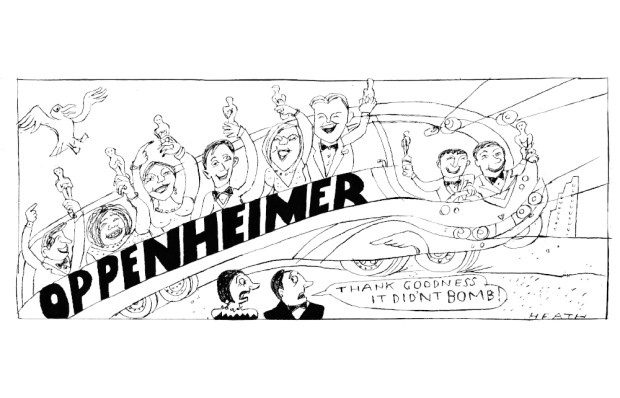
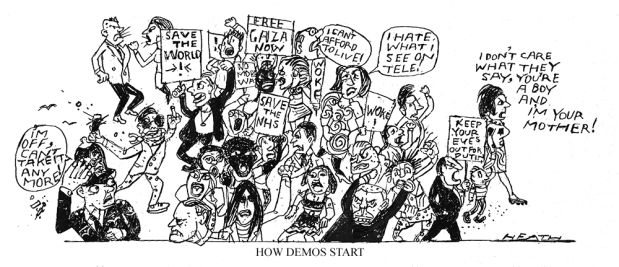
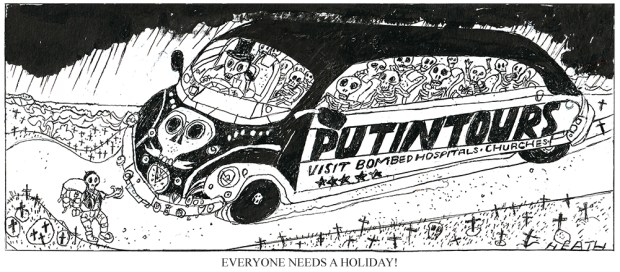
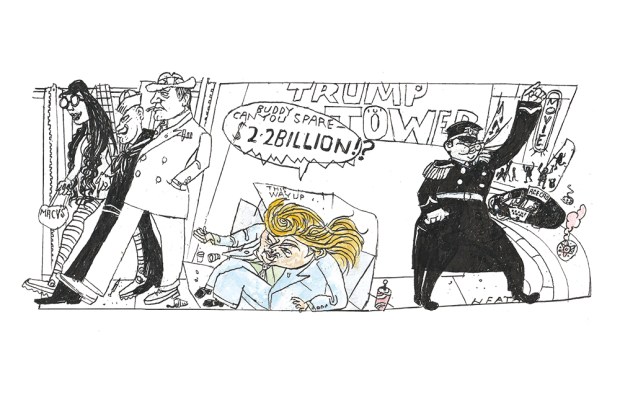






Comments
Don't miss out
Join the conversation with other Spectator Australia readers. Subscribe to leave a comment.
SUBSCRIBEAlready a subscriber? Log in